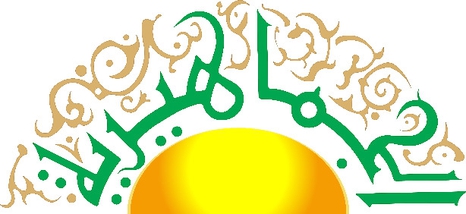Libyan Jamahiriya Broadcasting Corporation
 |
|
| Country | Libyan Arab Jamahiriya |
|---|---|
| Owner | Government of Libya |
|
Al-Jamahiriya TV
|
Television |
|
LJBC Radio
|
Radio |
|
Al-Madina TV
|
Television |
|
Official website
|
http://www.ljbc.tv |
| Al-Jamahiriya TV | |
|---|---|
 |
|
| Launched | 1969 (original date) 2014 (relaunch) |
| Closed | 2011 (original date) |
| Network | Libyan Jamahiriya Broadcasting Corporation |
| Picture format | PAL |
| Country | Libya |
| Language |
Arabic English French Russian |
| Broadcast area | International |
Libyan Jamahiriya Broadcasting Corporation (LJBC) (Arabic: الهيئة العامة لإذاعات الجماهيرية العظمى) was the state-run broadcasting organization in Libya under the rule of Muammar Gaddafi. It distributed news in coordination with the Jamahiriya News Agency in accordance with state laws controlling Libya media.
Stations run by the LJBC include:
Long occupied by Abdallah Mansour, the General Manager of the company has since January 2009 been Mohammed Ali Kilani, "poet of the revolution" and former manager of a production company.
On 22 August 2011, the organization was rendered defunct when its channels were taken off-air by anti-Gaddafi fighters, which had entered Tripoli the previous day.
The corporation's website and online presence was serviced by fifty employees, mostly journalists. They were organized into four departments; news editing, programming, design, and maintenance and operations, based in offices in Tripoli.
Al-Jamahiriya TV was a television channel broadcast by the Libyan Jamahiriya Broadcasting Corporation. The channel broadcast mainly Libyan Aljamahiriya discussions, cultural programs and news bulletins. It was available in three languages: Arabic, English and French.
Emphasis was left to the official Libyan political and government activities, with live coverage of sessions of the People's Congress, speeches of the "Guide of the Revolution" (the official position held by Colonel Gaddafi) and readings of The Green Book, written by the Libyan leader, and published in 1975.
The channel started in the morning and ended in the evening by reading verses from the Koran and the dissemination of the national anthem, before giving way to a focus and national radio.
The Libyan national television was broadcast via satellite to the Arab world and Europe via the satellites Arabsat and Hot Bird from 1997.
On 22 August 2011, the station was taken off-air by the National Transitional Council forces, which had entered Tripoli the previous day. After several failed attempts to bring it back after the war by supporters of the former regime, the channel eventually appeared again with a new form in 2014 and it is now airing on Nilesat.
...
Wikipedia
